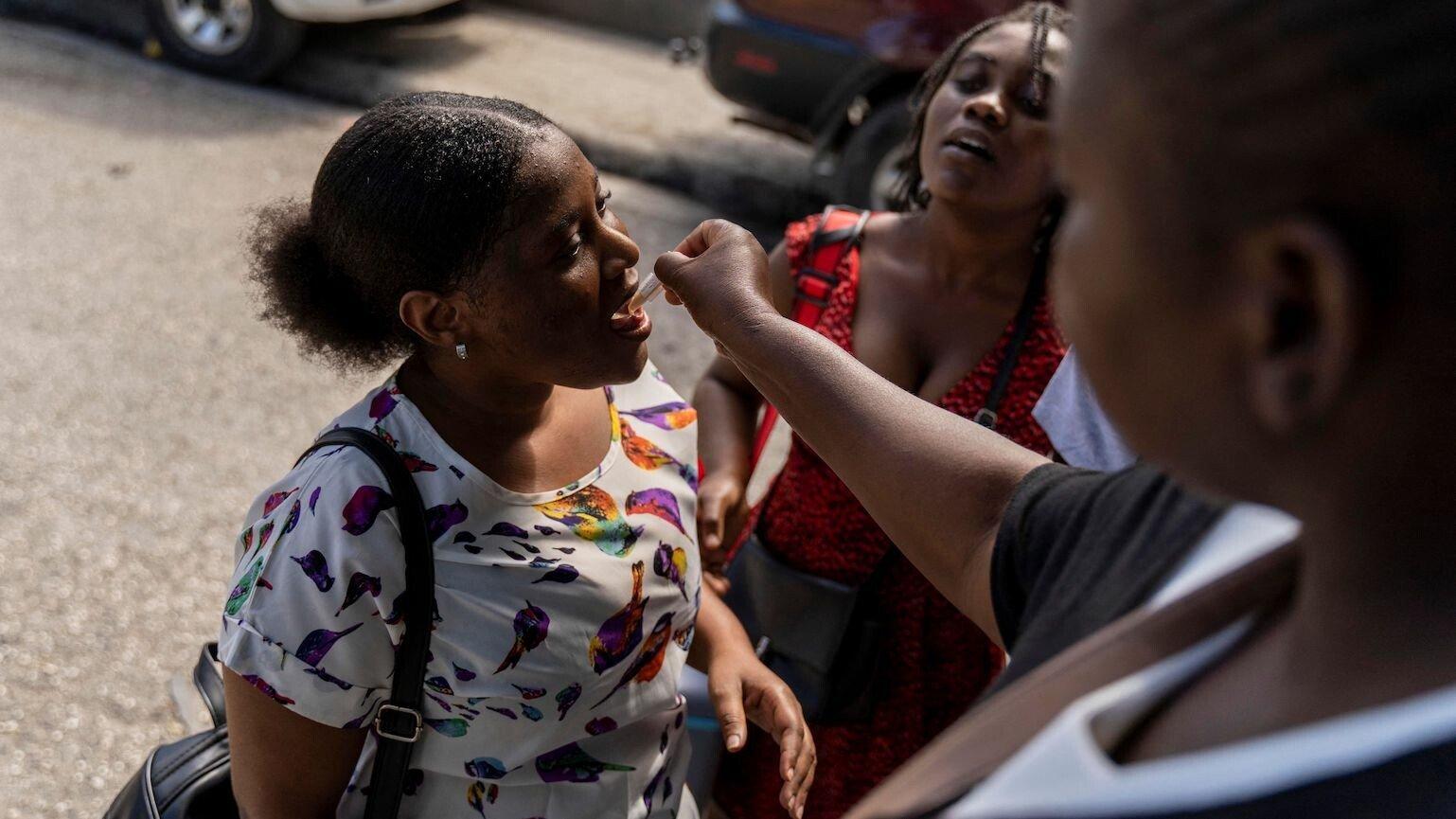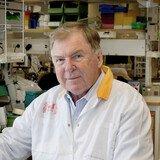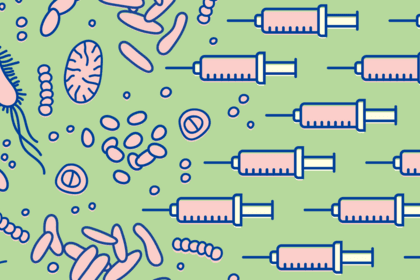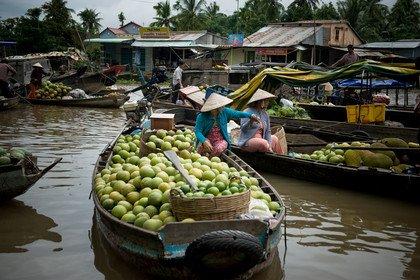
Cholera is a life-threatening diarrheal disease and a very unforgiving one. In severe cases, you can feel completely healthy at lunchtime and be dead before midnight.
While everyone is vulnerable to the disease, the highest incidence is in children between the ages of one and ten. In many other infectious diseases, you tend to get immunity at a higher age, but cholera can continue to hit you throughout your life. The main risk groups are communities with poor hygiene and sanitation facilities and lack of access to clean water. Other risks are having low levels of stomach acid and people with blood group O.
When I started researching cholera in the early 1970s at the University of Gothenburg in Sweden, my work focused on clarifying the mechanisms of disease and immunity in cholera. We defined the structure and function of the cholera toxin – the molecule which cholera bacteria produces in the intestine and is directly responsible for causing life-threatening diarrhoea. Our research found oral immunisation provided protection against cholera, whereas traditional injection-based vaccination was ineffective.
We used this information and collaborated with partners in Sweden and around the world to develop Dukoral, the first internationally licensed, effective oral cholera vaccine.
Our work paved the way for cheaper oral cholera vaccines. Today, we have three first-generation vaccines (Dukoral, Shanchol, and Euvichol) which have helped to save many lives. And in August 2024, a new second-generation vaccine (HillChol) was launched.
We’re funding research to better understand what causes and drives infectious diseases to escalate and the solutions to control their impact.
There are currently no open funding opportunities for Infectious Disease. Learn more about the funding we provide.
A goal to end cholera
The Global Task Force on Cholera Control aims to reduce cholera-related deaths by 90% and eliminate cholera in up to 20 countries by 2030. One can hope that in the long term, access to safe water and improved sanitation and hygiene may be able to take away the need for the oral cholera vaccine. However, for at least the next ten years, I think the oral cholera vaccine will be the cornerstone for the success of the programme.
The strategy has done well so far. The vaccine is being used to some extent to prevent endemic cholera but primarily for controlling outbreaks or protecting people who are at immediate risk.
The biggest problem throughout the whole period is that demand from countries for the oral cholera vaccine has always been much higher than the available number of doses. A global stockpile of oral cholera vaccines, created by the World Health Organization in 2013, deploys around 40 million doses per year but more than 100 million are needed.
We need to double or triple the production level to meet this demand. That’s a matter of economy and getting additional vaccine manufacturers on board. Wellcome and the Bill and Melinda Gates Foundation have made a good start by supporting a technology transfer from the International Vaccine Institute in South Korea to BioVac in South Africa, to manufacture an oral cholera vaccine.
"The global stockpile of oral cholera vaccines deploys around 40 million doses per year but more than 100 million are needed."
New generation cholera vaccines
Hillchol is a second-generation oral cholera vaccine. It is a simplified vaccine in which the many components of the first-generation vaccines have been placed in a single bacterial strain. That means it can be produced in very large quantities at a low price. My team in Gothenburg developed this strain in 2011, and from 2014 has collaborated with Wellcome and Hilleman Laboratories in India to develop it into an oral cholera vaccine. Hillchol, which was licensed to Bharat Biotec, launched in August 2024 following the successful completion of phase III clinical trials.
Another second-generation vaccine, Euvichol-S, is being developed in South Korea by EuBiologics in collaboration with the International Vaccine Institute (IVI). It’s made based on two strains only, so it can also be produced at a lower cost.
My team in Gothenburg is also working on a third-generation vaccine. We demonstrated a long time ago that it’s possible to keep Dukoral, the first-generation oral cholera vaccine, fully active in a dry format. We found that it improved the vaccine’s thermostability, so it can remain active in higher temperatures for a long period of time. Based on this research and supported by Wellcome, we created DuoChol, a prototype lightweight and low-cost capsule vaccine. It’s thermostable and would not need to be stored, managed or transported at a cold temperature to stay potent.
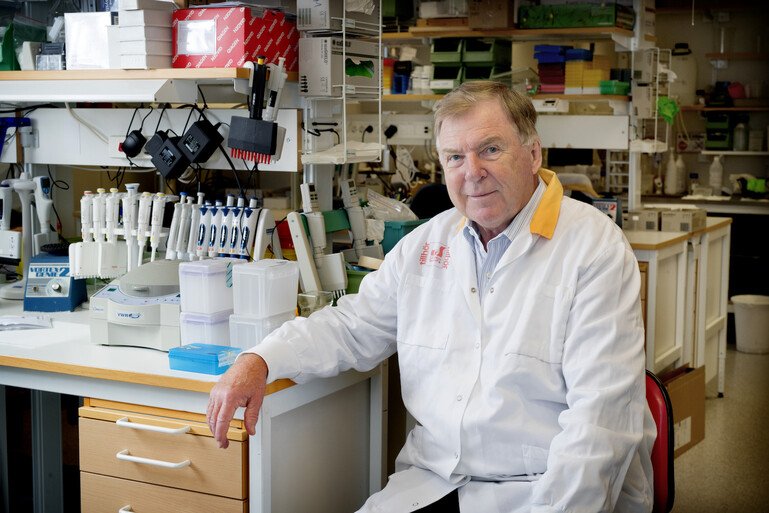
Professor Jan Holmgren at the University of Gothenburg, Sweden.
Malin Arnesson
Now, with continued support from Wellcome and additional support from the Swedish government and IVI, we've started further clinical development. We hope phase I studies will be completed in 2024 and that it will go to market by 2027.
With these new vaccines and manufacturers, I think the global cholera vaccine supply will look much better and soon meet the demand for 100 million doses per year if there is enough financial and political support.
What research is needed?
We need to define how best to use the first-generation oral cholera vaccines and the second-generation vaccines as they become available on the market.
In the 2021 Cholera Research Roadmap Agenda, 177 cholera stakeholders were interviewed – that included anyone working in the field, basic researchers and funders. The goal was to try to define the most important and outstanding research questions to help control cholera.
Most of the top identified research needs were about the oral cholera vaccine. How can we use the vaccine in the best possible way? How long does protection last for? What can we do to optimise immunisations?
To help answer this, Wellcome launched a funding call to generate evidence on the use of the oral cholera vaccine. I think it will achieve several things, and most importantly, understanding the impact of different dose schedules on the duration of protection, particularly in children.
It calls on researchers to map cholera hotspots. These are places where cholera is endemic for many years and where there is a heavy burden of disease. There are often big outbreaks in these hotspots and big epidemics that could spread into surrounding regions. If we want to eliminate or control cholera by 2030, we have to focus on addressing these hotspots.
Equally important is how we combine different intervention methods in the best way to control cholera outbreaks which have already begun. Time is an urgent factor in these cases. The earlier you can intervene in an outbreak, the greater chance there is to stop it.
We also need to consider our response in emergency situations when outbreaks are prompted by flooding, earthquakes or warfare. How best can we intervene under those situations?
I think we need to see much more basic and applied research and we need to combine this research with efforts to improve water, sanitation and hygiene (WASH). Rather than compete about which intervention is better, I think we need to find the most effective way to use them together.
This article was first published on 6 June 2023.
